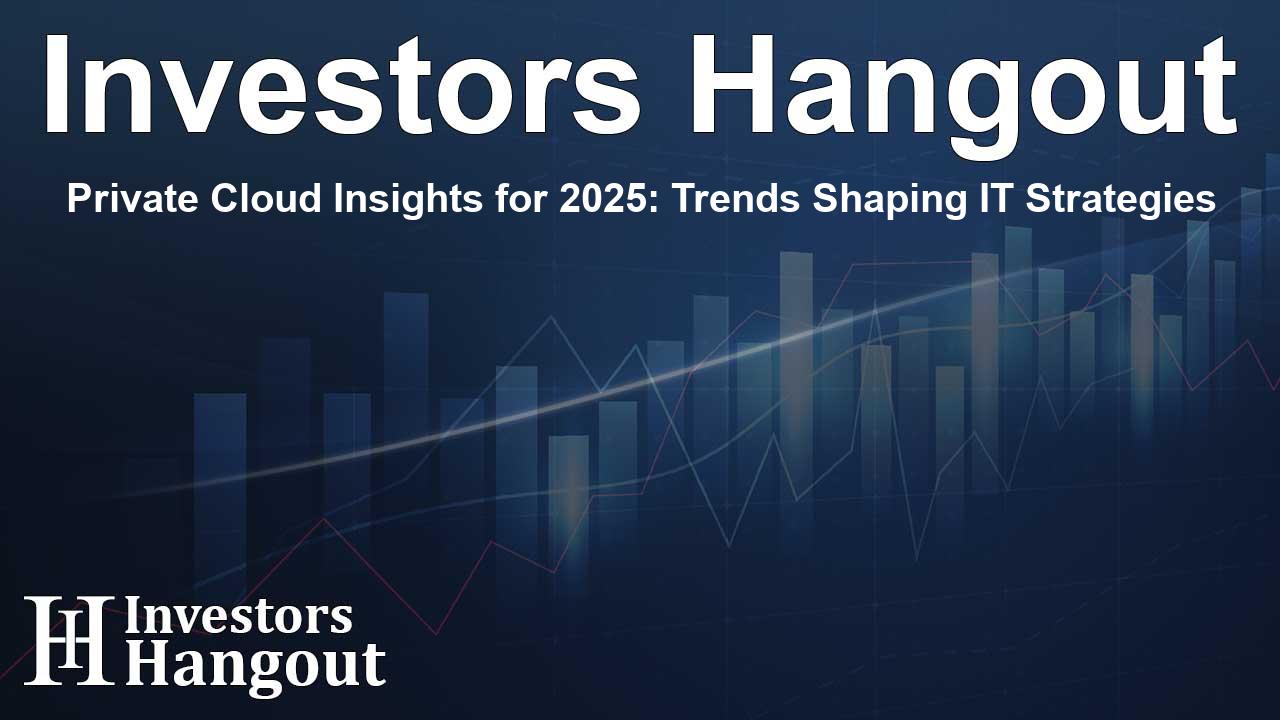Private Cloud Insights for 2025: Trends Shaping IT Strategies

Understanding the Shift in Cloud Strategies for 2025
In recent years, the landscape of cloud computing has dramatically evolved. The Private Cloud Outlook 2025 report sheds light on this transformation, revealing that organizations are now recognizing private cloud as equally crucial as public cloud. This shift is driven largely by the need for cost predictability, the rise of generative AI (GenAI), and the growing assurance in meeting security and compliance standards.
Key Findings on Private Cloud Adoption
From a comprehensive survey involving 1,800 IT leaders, it's evident that private cloud is gaining priority. A significant 53% of respondents indicated that private cloud ranks as their top choice for deploying new workloads over the next three years. Additionally, a remarkable 69% are contemplating shifting their workloads back from public to private cloud, with a third already making this change. The report illustrates a critical moment in cloud strategy, wherein private cloud has emerged as a strategic partner for the deployment of both traditional and cloud-native applications.
Security and Compliance as Major Decision Factors
Organizations are gravitating towards private cloud not only for its efficiency but also for its robust security measures. A remarkable 92% of IT leaders expressed trust in private cloud to address their security and compliance needs. In contrast, 66% have voiced serious concerns regarding compliance within public cloud environments, with security being the predominant reason for transitioning workloads back to private setups.
The Role of Generative AI in Cloud Strategy
The rapid ascent of GenAI workloads highlights an urgent need for environments that can manage these intricate systems securely. Data privacy concerns are at the forefront of GenAI challenges, with 49% of IT leaders citing this as a fundamental issue. Therefore, private cloud environments are increasingly seen as favorable for handling AI workloads, with 55% of organizations opting for private cloud over public cloud for their GenAI needs.
Cost Management as a Driving Force
The financial advantages of adopting private cloud are significant. An overwhelming 90% of respondents emphasize the value of financial visibility and predictability associated with private cloud solutions. With 94% reporting some level of waste in public cloud spending, many organizations are looking to optimize their expenditures. A staggering 49% believe that more than 25% of their public cloud budget goes to waste, further supporting the case for a shift to private infrastructures.
Challenges in Transitioning to Private Cloud
Despite these advantages, organizations face several challenges in transitioning to private cloud. Siloed IT teams were identified as the most significant barrier to adoption, cited by 33% of respondents. Furthermore, 30% noted a lack of in-house expertise as a significant obstacle. To effectively leverage the benefits of private cloud, organizations are encouraged to adopt a unified platform approach and invest in upskilling their staff. Interestingly, 81% have started to restructure their IT teams around platform-based models instead of traditional technology silos.
What Lies Ahead for Private Cloud in 2025?
The findings from the Private Cloud Outlook 2025 report signal a pivotal change in how organizations perceive and utilize cloud services. The desire for greater control, improved security, and cost efficiency will continue to steer organizations toward private cloud infrastructures. As they adapt to this evolving landscape, both seasoned IT professionals and newcomers must collaborate closely to reshape the future of cloud computing. Broadcom Inc. (NASDAQ: AVGO) remains at the forefront of this evolution, offering solutions that empower organizations to thrive in this new cloud paradigm.
Frequently Asked Questions
What is the main focus of the Private Cloud Outlook 2025 report?
The report highlights the increasing importance of private cloud in organizations' cloud strategies, driven by factors such as security, cost predictability, and GenAI workloads.
How significant is the private cloud trend among IT organizations?
More than half of surveyed IT leaders (53%) prioritize private cloud for new workloads, signaling a major shift in cloud strategy.
What security advantages does private cloud offer?
92% of IT leaders trust private cloud to meet their security and compliance needs, making it a preferred option for sensitive data handling.
What challenges do organizations face in adopting private cloud?
Siloed IT teams and a lack of in-house expertise are significant barriers, affecting 33% and 30% of respondents, respectively.
What role does cost play in the decision to adopt private cloud?
90% of IT leaders value the financial visibility and predictability of private cloud, while many see significant waste in their public cloud expenses.
About The Author
Contact Kelly Martin privately here. Or send an email with ATTN: Kelly Martin as the subject to contact@investorshangout.com.
About Investors Hangout
Investors Hangout is a leading online stock forum for financial discussion and learning, offering a wide range of free tools and resources. It draws in traders of all levels, who exchange market knowledge, investigate trading tactics, and keep an eye on industry developments in real time. Featuring financial articles, stock message boards, quotes, charts, company profiles, and live news updates. Through cooperative learning and a wealth of informational resources, it helps users from novices creating their first portfolios to experts honing their techniques. Join Investors Hangout today: https://investorshangout.com/
The content of this article is based on factual, publicly available information and does not represent legal, financial, or investment advice. Investors Hangout does not offer financial advice, and the author is not a licensed financial advisor. Consult a qualified advisor before making any financial or investment decisions based on this article. This article should not be considered advice to purchase, sell, or hold any securities or other investments. If any of the material provided here is inaccurate, please contact us for corrections.
